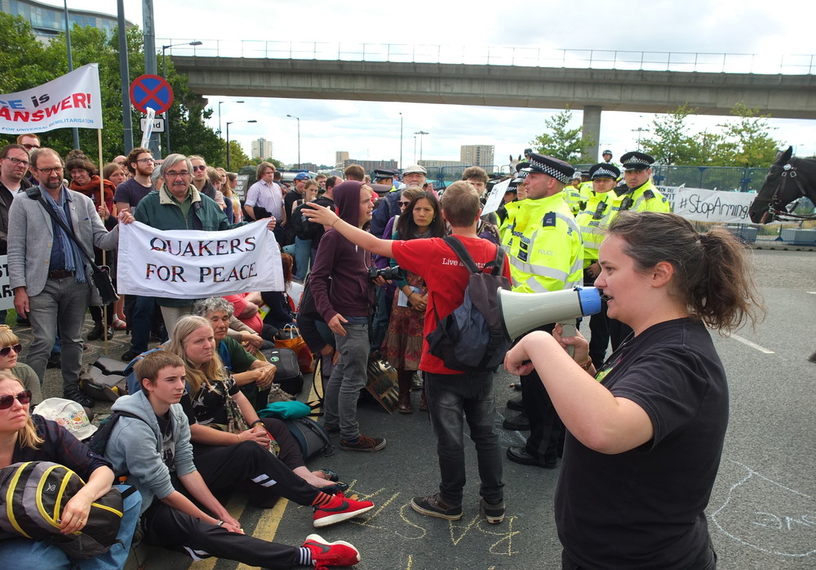Public Order Bill passes milestone
A bill which would drastically limit the right to protest in England and Wales has passed through the House of Commons.

Quakers in Britain briefed key MPs ahead of the final Commons debate, which took place on Tuesday 18 October.
The Public Order Bill would bring in draconian new offences and restrictions around protest, including:
- Introducing Serious Disruption Prevention Orders, or 'protest banning orders', to prevent people taking part in protest-related activities
- Creating new offences around: locking on; tunnelling; being equipped for locking on or tunnelling; and obstructing transport and infrastructure
- Expanding stop-and-search powers, including where police have no reason to suspect the person of doing anything wrong.
Peers removed these measures from the Police, Crime, Sentencing and Courts Act in January, and the government re-introduced them in a new bill in May.
Quakers in Britain and 30 other organisations called on MPs to vote to remove several clauses from the Public Order Bill in a joint briefing convened by Liberty. These amendments failed, despite being backed by opposition parties and some Conservative MPs. Amendments allowing the Home Secretary to apply for injunctions against protesters passed without going to a vote. Having completed its report stage in the Commons, the bill will now move on to the House of Lords.
Paul Parker, Recording Clerk of Quakers in Britain, said: “This bill is undemocratic and unnecessary. Quakers are often led by their faith to take part in peaceful protest and direct action. These methods have become increasingly important as the government has shut down other ways for people to engage in decision-making and hold it to account for its actions.
“The government must focus on tackling the causes of current crises rather than punishing those who campaign for positive change."
MPs voted to make one major change to the bill – adding a clause to create “buffer zones" around abortion clinics in England and Wales. Anyone interfering with people's decision to access or provide abortion services would be charged with a criminal offence and could go to jail.